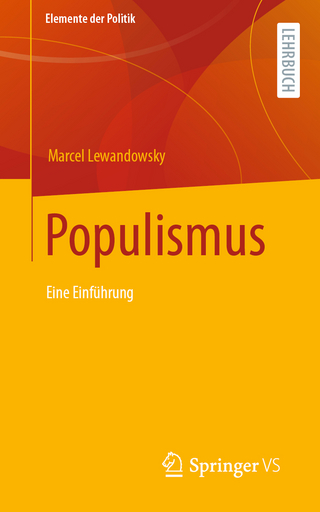
Locked Out of Development
Insiders and Outsiders in Arab Capitalism
Seiten
2023
Cambridge University Press (Verlag)
978-1-009-04557-5 (ISBN)
Cambridge University Press (Verlag)
978-1-009-04557-5 (ISBN)
This Element argues that the low dynamism of low- to mid-income Arab economies is explained with a set of inter-connected factors constituting a 'segmented market economy'. It explains how divisions between insiders and outsiders among firms and workers in the Arab world hold back development.
This Element argues that the low dynamism of low- to mid-income Arab economies is explained with a set of inter-connected factors constituting a 'segmented market economy'. These include an over-committed and interventionist state with limited fiscal and institutional resources; deep insider-outsider divides among firms and workers that result from and reinforce wide-ranging state intervention; and an equilibrium of low skills and low productivity that results from and reinforces insider-outsider divides. These mutually reinforcing features undermine encompassing cooperation between state, business and labor. While some of these features are generic to developing countries, others are regionally specific, including the relative importance and historical ambition of the state in the economy and, closely related, the relative size and rigidity of the insider coalitions created through government intervention. Insiders and outsiders exist everywhere, but the divisions are particularly stark, immovable and consequential in the Arab world.
This Element argues that the low dynamism of low- to mid-income Arab economies is explained with a set of inter-connected factors constituting a 'segmented market economy'. These include an over-committed and interventionist state with limited fiscal and institutional resources; deep insider-outsider divides among firms and workers that result from and reinforce wide-ranging state intervention; and an equilibrium of low skills and low productivity that results from and reinforces insider-outsider divides. These mutually reinforcing features undermine encompassing cooperation between state, business and labor. While some of these features are generic to developing countries, others are regionally specific, including the relative importance and historical ambition of the state in the economy and, closely related, the relative size and rigidity of the insider coalitions created through government intervention. Insiders and outsiders exist everywhere, but the divisions are particularly stark, immovable and consequential in the Arab world.
1. Introduction: Arab capitalism; 2. Historical roots; 3. Over-ambitious states; 4. A segmented labor market; 5. A segmented business sector; 6. Skills; 7. Individual country outcomes and alternative explanations; 8. Is Egypt the future?; 9. Comparative puzzles and gaps; 10. Conclusion; Bibliography.
| Erscheinungsdatum | 01.12.2022 |
|---|---|
| Reihe/Serie | Elements in the Politics of Development |
| Zusatzinfo | Worked examples or Exercises |
| Verlagsort | Cambridge |
| Sprache | englisch |
| Maße | 152 x 229 mm |
| Gewicht | 172 g |
| Themenwelt | Sozialwissenschaften ► Politik / Verwaltung ► Vergleichende Politikwissenschaften |
| Wirtschaft ► Volkswirtschaftslehre ► Finanzwissenschaft | |
| Wirtschaft ► Volkswirtschaftslehre ► Makroökonomie | |
| Wirtschaft ► Volkswirtschaftslehre ► Wirtschaftspolitik | |
| ISBN-10 | 1-009-04557-1 / 1009045571 |
| ISBN-13 | 978-1-009-04557-5 / 9781009045575 |
| Zustand | Neuware |
| Haben Sie eine Frage zum Produkt? |
Mehr entdecken
aus dem Bereich
aus dem Bereich
Geschichte, Parteistruktur, Radikalisierung
Buch | Softcover (2024)
UTB (Verlag)
27,90 €


